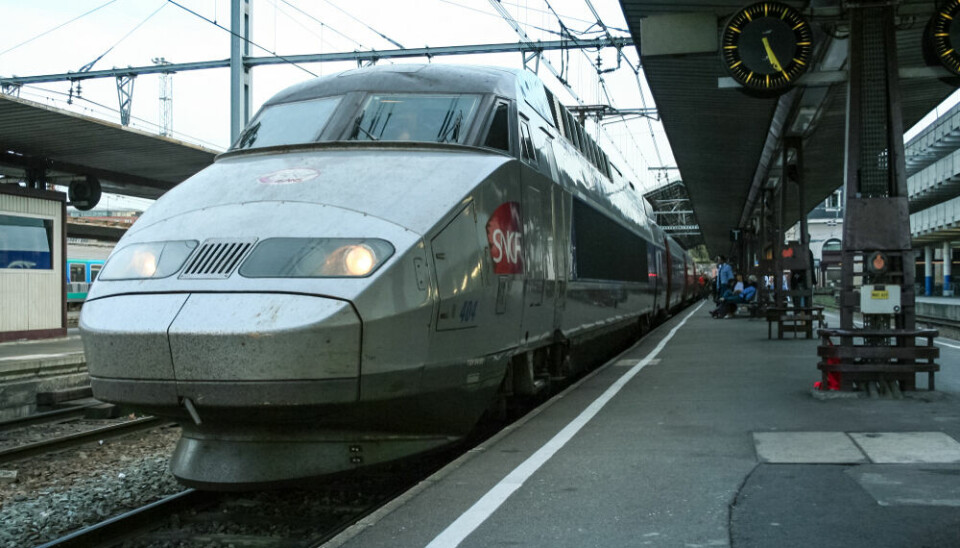Strong public support for new TGV lines in south-west France
More than three quarters (78%) of people polled nationally support the Toulouse-Bordeaux and Bordeaux-Dax lines despite considerable local opposition
A majority of people polled believe that the new train lines in south-west France will bring environmental, economic, and tourism benefits
BalkansCat/Shutterstock
A majority of people in France support the creation of high-speed train lines between Toulouse and Bordeaux, and Bordeaux and Dax, hailing them as good for the economy and the environment.
Almost eight in 10 (78%) of people in France are in favour of the project, the study by pollster Odoxa for the company the Grand société du grand projet ferroviaire sud ouest (GPSO) and the Agence GPSO found that
Construction has already begun on the lines.
“This shows that 78% of people in France are convinced that this new line will enable us to better connect Europe from north to south, from west to east,” said Gaël Sliman, president of Odoxa.
The two new lines will be high-speed lignes à grande vitesse, mainly aimed at carrying trains à grande vitesse (TGVs). However, they can also be used by other types of trains.
The poll also found that participants believed that the two lines would also benefit other railway lines in the areas covered.
"Three quarters of French people…are convinced of the benefits of this project in terms of improving exchanges between Toulouse and Bordeaux, and between Spain and France, but also for the medium-sized towns of the south-west and for better service to the areas located near the stations,” the report said.
Read more: What changes in France in 2024 for public transport?
Benefits to the economy, environment, and tourism?
The poll also found even greater support for the project among people in Spain. A total of 95% of respondents in Spain said they were in favour of the construction of the new lines.
People in France and Spain said the project would bring benefits to the environment and economy because it will:
Mean fewer car journeys (74% French, 88% Spanish)
Mean fewer plane trips (83% and 94%)
Improve the flow of lorries on the roads (60% and 65%)
Save people time on their daily journeys (81% and 91%)
Bring towns in the south-west of France closer to the rest of the country and Spain (82% and 93%)
Promote trade between France and Spain (80% and 92%),
Improving access to employment for local people (75% and 89%)
Attract businesses to these areas (76% and 90%)
The project is also expected to bring improvements to the tourism sector.
55% of people in France said the project would encourage them to travel more within the south-west of France
90% of people in Spain said it would encourage them to visit France more often
40% of people in Spain said they would definitely visit France more after the lines are in service
Funding and local taxes
The project is set to cost €14.3 billion.
It will be 20% funded by the European Union, 40% funded by the state, and 40% funded by local government, including the regions of Nouvelle-Aquitaine and Occitanie.
Part of the funding will come from extra taxes on local residents in the 2,340 towns and communes that will be located less than 60 minutes by car from a future station on the lines. This tax is called a special equipment tax (taxe spéciale d'équipement - TSE).
Read more: New resident tax to help fund high-speed rail link in southwest France
Opposition: Funding and modernisation
The plan has not been without opposition, especially from a funding point of view.
Read more: Controversy erupts around Bordeaux-Toulouse high-speed train line
The Lot-et-Garonne association Très Grande Vigilance en Albret has lodged an appeal against the project, and questioned whether the taxes on local residents are constitutional and fair, by submitting a question prioritaire de constitutionnalité to the Conseil Constitutionnel.
The association has stated that because the project is national, it should be financed by all French citizens, rather than locals only. However, if the tax is declared to be unconstitutional, it could call the project into question, by casting doubt on a significant proportion of the funding.
Other significant opponents to the plan are the mayor of Bordeaux, Pierre Hurmic (EELV green party), and eight cross-party members of the Gironde (Nouvelle-Aquitaine) parliament.
They have called for a “moratorium on decisions relating to this project”, and have expressed "serious doubts about the real usefulness” of rail plans south of Bordeaux, including this project to connect to Toulouse (Occitanie). They have condemned the plan as a “project from the past”, and said it will “damage 4,830 hectares of natural, agricultural and forest land".
Similarly, the construction projects have attracted opposition from some residents, who are against the demolition of houses, and perceived destruction of countryside to make way for the lines and stations. Around 400 houses will be demolished to make way for the route.
However, currently, the Occitanie region is the only one in France that does not have its own TGV lines, and plans for a Toulouse-Bordeaux high-speed line have been under discussion for nearly 20 years.
Should the project continue as planned, the new train lines are expected to be in service from 2031-32.

























